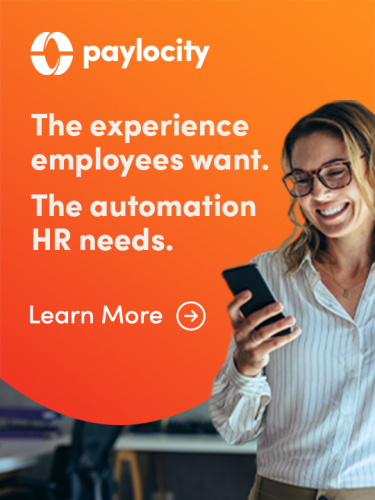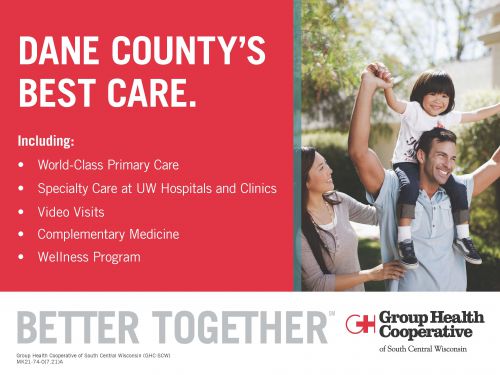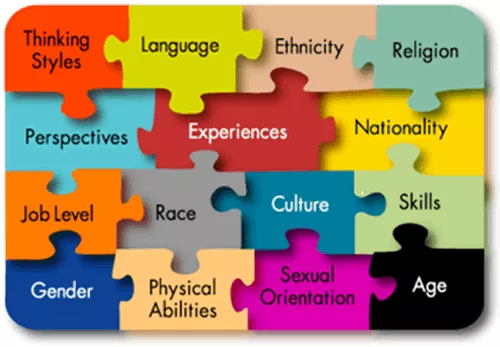August
|
HR InTouchThe Monthly Newsletter of the Greater Madison Area SHRM |
|||||||||||||||||||||||||||||||||||||||||||||||||
In This EditionPresident's Message
Threat of Discipline is Enough to Trigger FMLA Interference Claim
How Well-Meaning Managers Kill Employee Engagement Our Next Professional Development Summits The Importance of Emotional Intelligence in the Workplace
How ERGs Can Support Women Working in Hybrid Environments Volunteer Opportunity - Resume Reviews and Interview Preparation Helpful Link from Wisconsin DWD: - Wisconsin Bone Marrow and Organ Donation Leave Act Diversity Observances in August
Committee Spotlight - Membership Retention and Recruitment! Welcome New Members!
|
Ahoy GMA SHRM Members! Government Affairs & Legal Updates Threat of Discipline is Enough to Trigger FMLA Interference ClaimSubmitted from Brian P. Goodman, GMA SHRM Programming Member, Sarah J. Horner, and Storm B Larson, all Attorneys at Boardman & Clark LLP, a Platinum Sponsor
Return to Top How Well-Meaning Managers Kill Employee Engagement Picture the scene. One of your top employees is struggling with her manager. The employee is razor-sharp, produces results, and she just “gets it.” There isn’t active conflict with her manager, but the communication appears to be breaking down. She’s not as engaged as she once was and her manager, while doing the best he can, is stretched thin. And then on Friday morning, you get the email that you had a feeling was coming. She put in her notice. Picture the scene. One of your top employees is struggling with her manager. The employee is razor-sharp, produces results, and she just “gets it.” There isn’t active conflict with her manager, but the communication appears to be breaking down. She’s not as engaged as she once was and her manager, while doing the best he can, is stretched thin. And then on Friday morning, you get the email that you had a feeling was coming. She put in her notice.Sound familiar? If so, you’re not alone. Across America, thousands of HR professionals are struggling to retain their talent. The nation’s “quit rate” reached a 20-year high last November, to the point that analysts coined the term “The Great Resignation” to describe the phenomenon. Issues of retention and turnover are at the top of every HR leader’s mind. A recent Pew research poll found that, of people who quit a job in 2021, 63% left because pay was too low or there were limited opportunities for growth. However, 57% left because they felt disrespected at work. While limited resources might mean there isn’t room for increased pay or retention bonuses, creating an environment where employees feel engaged and respected is always possible. As an executive and team coach, I’ve seen my fair share of toxic managers who create hostile work environments. But what I see more often are leaders with good intentions who unknowingly sabotage the engagement on their team. How many of these types of managers have you seen in your organization? Priscilla, the predictor Let’s start with Priscilla, the predictor. Priscilla has been a leader in the organization for almost 30 years, and in that time she’s seen and learned a lot. As such, she’s a valuable member of her team: there’s almost no crisis that she hasn’t weathered before. Where Priscilla’s experience sometimes backfires though is when she meets employees at the water cooler, or at corporate events she’s planned. Because she’s been in the industry so long, she feels like she’s heard every employee complaint in the book, to the point she can often predict what people will say. So she cuts them off mid-sentence to do exactly that. Priscilla’s intention is to share with her colleagues some of the wisdom she’s learned over her career. She’s also trying not to waste her time, or her colleague’s, by getting to the point straightaway. But she can end up missing what the issue really is and her employees feel cut off. Andy, the advisor Andy is all about being helpful – that’s why he got into HR in the first place. He loves to help employees deal with their problems. If you come to him with a question, he’ll always have a solution for you. Sounds great, right? The only issue is Andy’s unsolicited advice sometimes gets in the way of employees solving their own problems. Andy might be full of solutions, but what we are also seeing in the research is that employees, especially younger employees, want coaching. Dianne, the diffuser Dianne’s main goal as manager is to maintain harmony in the teams she works with. If two leaders are arguing, you can bet Dianne will be involved as a mediator in some way. As a result, she is well-liked and trusted by most people in the office. One day, Dianne receives a visit from Sue, a senior employee in the marketing department. Sue is frustrated with her boss, who she feels never listens to her strategic input. She tells Dianne how she’s tried over and over to reason with him, but he always brushes off her suggestions and never seems to have time for her. “Don’t worry,” says Dianne, in an attempt to diffuse the situation. Dianne’s learned that worrying about problems rarely makes them better, and her intention is to put Sue at ease. But this ends up backfiring. Sue has a lot of experience, and she’s already tried everything she could think of to solve her issue with her boss. So when Dianne tells her not to worry, Sue feels like her concerns aren’t being taken seriously – which was the exact issue she had with her boss. Sue is not feeling heard. Going slow to go fast What do all these stories have in common?
My work as a coach has shown me there are times when you have to go slow to go fast. Managers have a variety of roles to play. At different times they need to be the problem-solver, the facilitator, or the consultant. But employees, at times, are looking for a coach, a mentor, or a partner as they work on different tasks. That’s where the disconnect can occur and communication can begin to break down. My team and I work with managers on a daily basis to explore the roles they play and assess what role is needed at different times. Using my leadership model, Thoughtfully Fit, we explore how managers can practice Strength and expand their range, in order to consciously choose what role to take in any given situation. Sometimes an employee is looking for their manager to solve their problem for them. Other times, the employee just wants to be heard. It might mean taking more time at that moment, but the payoff can be well worth it. Just like doing bench presses at the gym, building Strength takes effort and consistent practice. Just like you can’t wake up and run a marathon if you haven’t been training, you can’t connect with employees without intention! So let me leave you with a core workout you can practice in your own time or share with the well-intentioned managers on your team. The next time an employee comes to you to talk about an issue in their work:
Return to Top
|
|||||||||||||||||||||||||||||||||||||||||||||||||
| Keri | Allard | The QTI Group | |
| Kelli | Bialkowski | ||
| Cody | Erickson | Cottingham Butler | |
| Lisa | Hirchert | SPHR, SHRM-SCP | MRA - The Management Association |
| Rachel | King | FAC Services | |
| Stephanie | Mansfield | SHRM-CP, PHR | Exact Sciences |
| Baylie | Martin | Springs Window Fashions | |
| Diana | Pastrana | IICDP | Defyne |
| Symonne | Purifoy | Uniroyal Engineered Products | |
| Becky | Shearier | ARGENT Companies Inc | |
| Ashley | Tabbert | Flow |
Member Awards and Recognition
Have you recently earned a professional achievement award? If so, we want to hear about it.
If so, we want to hear about it. Send us an e-mail, and we’ll publish your good news in the next HR InTouch!
In Transition
If you are a member who is in between jobs, or who is currently employed but seeking new positions or career paths, write us a brief description of your skill set, areas of expertise, what you’re looking for, etc. Send us an e-mail. We’ll publish your information in the next HR InTouch.




.jpeg)

